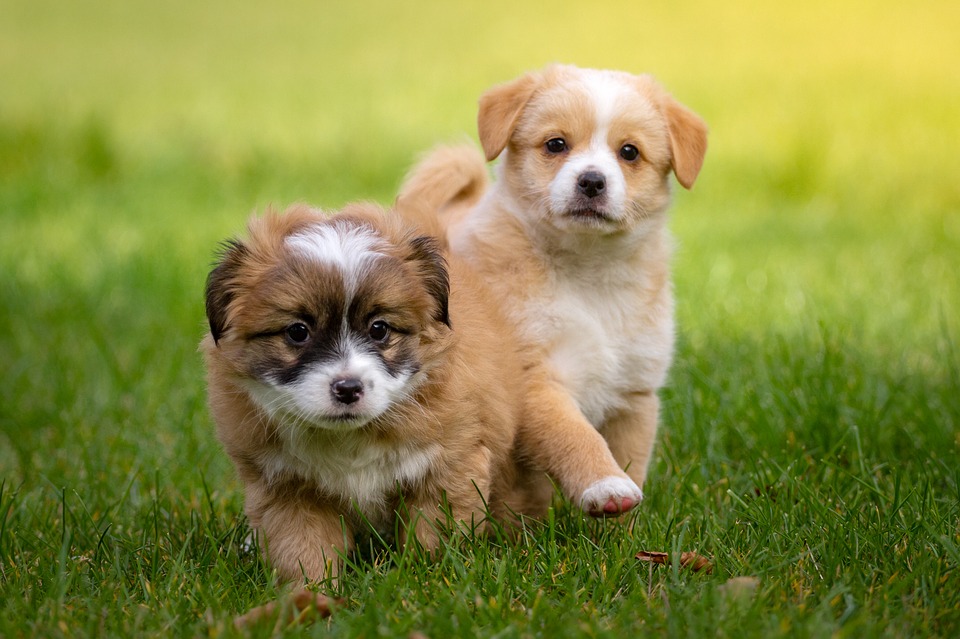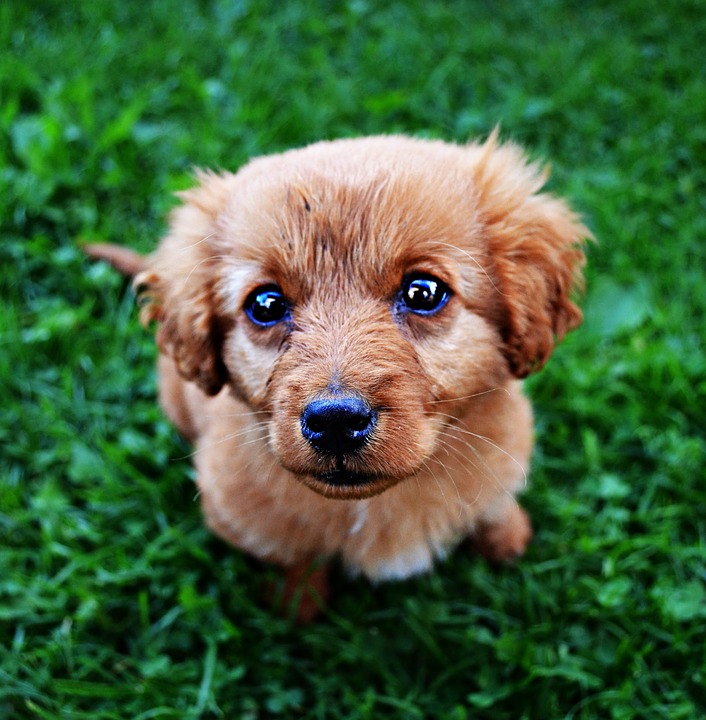As a dog lover with years of experience, I've encountered countless mysteries in the world of canine behavior. One of the most enduring puzzles, and one that often brings a mix of amusement and bewilderment, is the dog's penchant for foot-licking. I mean, who wouldn't be curious about why their furry friend decides to give their toes a good ol' lick? Sure, sometimes it feels like an act of pure affection, but there's more to it than meets the eye. So, I embarked on a quest to uncover the scientific reasons behind this endearing, and sometimes downright perplexing, canine habit. Let's unravel the mysteries of why dogs lick our feet, exploring the various motivations behind this fascinating behavior.
(Part 1) A Love-Hate Relationship with My Dog's Feet Licking

The moment I brought home my rambunctious golden retriever, Buddy, his foot-licking became a regular part of our daily routine. It was a bit overwhelming at first, a whirlwind of wet, slobbery paws on my legs. But as time went on, I began to understand that it was his way of showering me with affection. However, there were moments when his enthusiasm would get the better of him. He’d lick with such vigor that it would tickle me uncontrollably, sending me into fits of laughter. The most curious thing was that Buddy wouldn’t shower everyone with his foot-licking affections. He had his favorites. My wife, for example, was often spared from this ritual. It was as if he was reserving this special gesture for those he held particularly dear. While I often found it endearing, there were times when I felt like Buddy was trying to tell me something, but I just couldn't quite decipher his message. That’s when my curiosity got the better of me.
(Part 2) The Many Reasons Behind a Dog's Foot Licking

After diving into research and having countless conversations with veterinarians, I discovered that there are several reasons why dogs lick your feet, some more straightforward than others.
2.1: Canine Kisses and Expressions of Affection
Dogs are inherently social creatures, and they communicate through a variety of fascinating ways, including licking. Licking, in many cases, is a way for dogs to express their affection and strengthen their bond with their human companions. It's a deeply rooted form of canine communication that stems from their puppyhood. Imagine a tiny puppy licking its mother to get her attention and show her it’s happy and well-fed. This innate behavior often carries over into adulthood, and licking becomes a cherished way for dogs to demonstrate their love and appreciation for their owners.
2.2: Seeking Attention and Bonding
Dogs are pack animals, and they thrive on the attention and connection they get from their human pack members. Licking your feet can be a way for them to grab your attention and engage in a bonding activity. The act of licking releases endorphins in both the dog and the human, creating a sense of well-being and fostering a deeper bond. It’s their way of reminding you that they're there, that they are part of the pack, and that they crave your attention and affection. Buddy often licks my feet after I’ve been away for a while. It’s almost as if he’s making sure I know he’s still there and hasn’t forgotten about me. And, let’s face it, who can resist those puppy-dog eyes looking up at you, pleading for a bit of your time?
2.3: Salt, Sweat, and the Delectable Taste of You
Your feet can be quite a delicious source of taste sensations for your dog. We often sweat through our feet, and this sweat contains salt, which can be appealing to dogs. They are drawn to the salty taste, it’s like a little snack for them. They may also be intrigued by the oils and fragrances on your skin, which can be quite intriguing to their sensitive noses. It's a strange concept from our perspective, but imagine your dog's world, where smells and tastes are far more important to their experience than they are to us. A little bit of foot sweat can be like a gourmet meal to them, a sensory feast they crave.
2.4: Seeking a Taste of Your Food
Remember that your feet are not just a source of sweat and salt. They also carry the delicious smells and traces of food. You might be surprised to find out how many different things your dog picks up from your feet. Think about it, who doesn’t love the smell of a freshly cooked meal? Just imagine how appealing a foot that’s been traipsing through the kitchen could be to a dog with a sensitive nose. This is especially true if you’ve been handling or preparing food. Those delicious aromas linger on your feet, and your dog is eager to get a taste, even if it’s just a subtle hint of what you’ve been enjoying.
(Part 3) The Potential Health Reasons Behind Foot Licking

While foot-licking is often a simple act of affection, there are certain situations when it could be a sign of a more serious problem.
3.1: Anxiety and Stress
Just like humans, dogs can experience anxiety and stress. Licking can be a way for them to self-soothe and alleviate stress. If you notice that your dog is licking your feet more frequently or excessively, it could be a sign that they're feeling anxious or stressed. It’s a good idea to pay attention to your dog's overall behavior and look for other signs of stress, such as restlessness, panting, or excessive barking. If you suspect that your dog’s foot-licking is related to anxiety, consult with your veterinarian to discuss possible solutions.
3.2: Boredom and Attention Seeking
If your dog is bored, they may resort to licking your feet to get your attention. This is especially true if they're not getting enough exercise, mental stimulation, or interaction. Dogs need a balance of physical activity and mental engagement. It’s important to give your dog plenty of opportunities to play, learn, and socialize. Buddy, for example, would often lick my feet more when I was working from home and he wasn’t getting enough attention. It was almost like he was trying to remind me that he was still there, that he needed some of my time. It’s a good reminder for all of us to be more present and attentive to our furry friends.
3.3: Skin Issues and Allergies
Foot-licking can sometimes be a sign of a skin issue or allergy. If your dog has a skin irritation, they may lick their feet to try and alleviate the discomfort. It’s their instinctual way of trying to soothe themselves. It's also possible that they may lick your feet because they have allergies that cause itchy feet. If you notice that your dog is licking their feet excessively or is showing other signs of skin problems, such as redness, itching, or hair loss, it’s important to consult your veterinarian. They can help you determine the root of the problem and provide the right treatment.
3.4: Compulsive Disorder
In some cases, foot-licking can be a sign of a compulsive disorder. This is usually a more serious condition that requires professional help from a veterinarian or certified animal behaviorist. If you suspect your dog might have a compulsive disorder, it’s essential to seek professional help right away. A qualified professional can help diagnose the condition and develop a personalized treatment plan.
(Part 4) How to Understand Your Dog’s Foot-Licking Behavior
The key to understanding your dog's foot-licking behavior lies in paying close attention to the context and timing of the action.
4.1: Context and Timing
Is your dog licking your feet when you first come home after being away? This is a good indication that they are happy to see you and eager for your attention. Are they licking your feet after you've just had a delicious meal? This could be their way of trying to get a little taste of what you’ve had, or a way of letting you know they are feeling a little left out. If your dog is licking their feet excessively or is showing other signs of stress, it's a good idea to consult your veterinarian to rule out any medical conditions.
4.2: Observation and Understanding
Pay close attention to your dog's body language and other cues. Are they wagging their tail, looking at you with happy eyes, or are they showing signs of stress or anxiety? You can also look for changes in their breathing, panting, or trembling. Observing these cues will help you better understand the underlying reason for their foot-licking behavior.
4.3: Patience and Communication
Try to be patient with your dog and communicate with them in a positive way. If you're not comfortable with their foot-licking, try to redirect their attention with a toy or a treat. It’s important to establish clear boundaries and teach them appropriate behavior. But always remember to be positive and patient; after all, they’re just trying to show you they care.
(Part 5) Managing Your Dog's Foot-Licking
If your dog's foot-licking is excessive or bothersome, there are a few things you can do to manage it.
5.1: Redirect and Distract
When your dog starts to lick your feet, try to redirect their attention with a toy or a treat. This will help to break the cycle of licking and provide them with a more positive outlet for their energy. It’s a great way to shift their focus and channel their enthusiasm in a more acceptable direction.
5.2: Set Clear Boundaries
Teach your dog that licking your feet is not acceptable behavior. You can do this by using a firm "no" or "stop" command, followed by a positive reinforcement, such as a treat or praise. It’s important to be consistent and patient in your training. Repetition and clear communication are key to helping your dog understand the boundaries you’ve set.
5.3: Provide Mental and Physical Stimulation
Make sure your dog is getting enough exercise and mental stimulation. This can help to reduce boredom and anxiety, which can contribute to excessive licking. Consider taking them for walks, playing fetch, or engaging them in puzzle toys. By keeping your dog both physically and mentally challenged, you can help prevent boredom and the resulting unwanted behaviors.
5.4: Consult Your Veterinarian
If your dog's foot-licking persists despite your efforts to manage it, it's a good idea to consult your veterinarian. They can help to rule out any underlying medical conditions and provide you with guidance on how to best manage your dog's behavior. They can also offer suggestions for training methods and behavioral therapies tailored to your dog’s needs.
(Part 6) A Foot-Licking Tale: The Case of Buddy
I remember the day I finally understood the reason behind Buddy’s excessive foot-licking. I was home alone with him, working on a big presentation, and he was being particularly insistent about his foot-licking ritual. I was getting frustrated; it was disrupting my flow. I finally decided to put him in his crate for a bit. When I came back out, I found him staring at me with a sorrowful look. I realized that he was probably stressed about me being so focused on my work and neglecting his needs. I got up, took him for a walk, and played a game of fetch. He was ecstatic, his tail wagging with joy. From that day on, I made a conscious effort to give him more attention, and, lo and behold, his foot-licking decreased significantly. It made me realize that sometimes, our furry companions are just trying to tell us they need a little extra love and attention.
(Part 7) Foot-Licking: A Form of Communication
It's important to remember that foot-licking is a form of communication for dogs. They’re trying to tell us something, even if we don't always understand their language. By observing their behavior, understanding their needs, and communicating effectively, we can build strong bonds with our furry companions. It’s about understanding their quirky little ways and finding a way to bridge the gap between our world and theirs. It’s about recognizing their attempts to communicate and responding in a way that builds trust and strengthens your bond.
(Part 8) The Joy of Canine Companionship
Despite all the quirks, I wouldn’t trade my dog’s foot-licking for anything. It’s a reminder of the unbridled joy they bring into our lives, the unconditional love they give us, and the unique connection we share. Maybe it’s just me, but there’s something incredibly comforting about a dog licking your feet, even if it means getting a little wet and slobbery. It’s a gesture of affection, a display of trust, and a reminder of the special bond we share with our furry companions.
FAQs
Let’s clear up some of the common questions about dogs licking feet.
1. Is it okay for my dog to lick my feet?
Generally, it’s harmless for your dog to lick your feet. However, it’s important to practice good hygiene and wash your feet regularly. If your dog is licking excessively, it’s a good idea to consult your veterinarian to rule out any underlying medical conditions. They can help you determine if there’s a more serious reason behind the behavior.
2. Why does my dog lick my feet more than anyone else’s?
This could be because your dog is more attached to you than anyone else. It could also be because your feet are more appealing to your dog, perhaps they are saltier or have a more interesting aroma. Just like humans, dogs have individual preferences. It’s a reminder that dogs are unique individuals with their own personalities and quirks.
3. Should I stop my dog from licking my feet?
It’s perfectly fine to allow your dog to lick your feet in moderation. However, if it’s excessive or bothersome, you can try to redirect their attention or set clear boundaries. If you find the behavior uncomfortable, it’s okay to teach your dog that it’s not appropriate.
4. Can my dog get sick from licking my feet?
It’s possible for your dog to get sick from licking your feet if you have any cuts or open wounds. Make sure to keep your feet clean and bandage any wounds. It’s important to practice good hygiene to ensure both your and your dog’s health.
5. Why is my dog suddenly licking my feet more?
There could be several reasons why your dog is suddenly licking your feet more. They may be stressed, anxious, bored, or seeking more attention. It’s important to pay attention to your dog’s behavior and other cues to help determine the underlying reason. Be observant and try to identify any changes in their environment or routine that may be contributing to the behavior.
Everyone is watching
-

Can Dogs Eat Bananas? A Guide to Safe Treats
DOGS & PUPPIESThis comprehensive guide will delve into the world of canine nutrition, focusing on the popular question: can ...
-

Can Dogs Eat Oranges? (Is It Safe or Toxic?)
DOGS & PUPPIESThis article delves into the question of whether dogs can safely consume oranges. We'll explore the nutrition...
-

Can Dogs Eat Grapes? The Shocking Truth About This Fruit
DOGS & PUPPIESThis article delves into the controversial topic of grapes and dogs, exploring the potential dangers associate...
-

Why Do Dogs Eat Poop? Understanding Coprophagia in Dogs
DOGS & PUPPIESThis article delves into the perplexing phenomenon of coprophagia, the act of eating faeces, in dogs. We explo...
-

Can Dogs Eat Shrimp? A Guide to Safety and Risks
DOGS & PUPPIESThis comprehensive guide dives into the world of shrimp and dogs, exploring the potential benefits and risks a...
